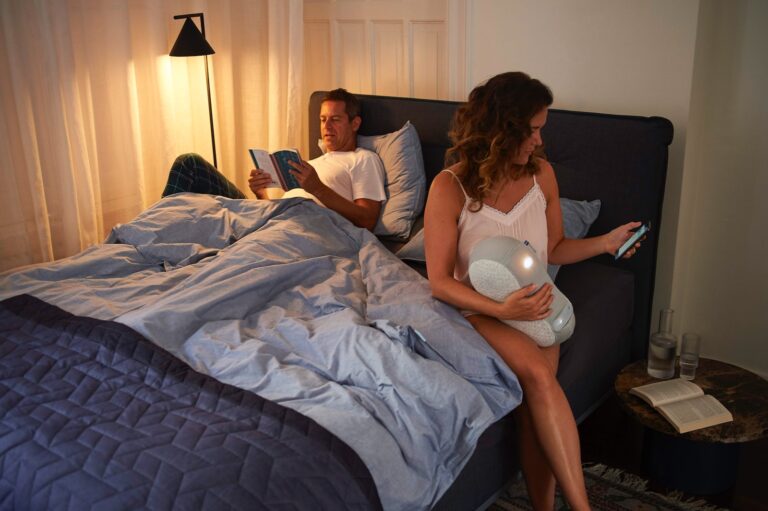A little cramping after orgasm is totally normal and should go away with a bit of rest. But persistent cramping can be a sign of something more serious.
Cramps can be a sign of sexually transmitted infections (STIs). Chlamydia, for example, often causes abdominal pain, including after sex. A bladder infection can also cause cramping.
Causes
Often, cramping after sex is caused by uterine muscle contractions that accompany orgasm. This is a normal part of the process, but it can cause discomfort if the cramps continue after the orgasm has ended. Cramps that occur during or after sex can also be due to other causes, such as urinary tract infections (UTIs) and certain pelvic conditions.
Semen contains a hormone-like substance called prostaglandin, which some women are sensitive to. When ejaculated into the vagina, it can stimulate pain and cramps.
A uterine fibroid or cyst can also cause cramping after sex. Fibroids are benign growths in the uterus, and they can be painful, especially if they get large enough to put pressure on the cervix. Cysts are fluid-filled sacs that grow on the ovaries. They are common, and many people don’t even realize they have them. But when they get too big, they can cause pain and heaviness in the lower abdomen.
Sometimes, pain and cramping after sex isn’t related to sex at all, but to other factors, such as stress, anxiety, and trauma. A gynecologist can help treat the root cause of these symptoms. Staying hydrated, stretching, practicing relaxation techniques, using comfortable sexual positions, engaging in foreplay, and using lubrication can all help prevent and ease cramps after sex. Taking medication or seeing a therapist can also help relieve them. If the cramps are severe, persistent, or accompanied by vaginal bleeding or other symptoms, see a doctor right away.
Treatment
Cramping after sex can be painful and may interfere with pleasure. If it is a frequent occurrence, consult your gyno to figure out the root cause and get you back to enjoying sex again. If it happens occasionally, lubrication, switching sex positions, foreplay, and staying well-hydrated can help to ease the cramps.
For some people, pain after sex is a symptom of a medical condition, such as dysphoria or uterine fibroids. For others, it is a side effect of a sexually transmitted infection (STI) like chlamydia or gonorrhea. In either case, a gynecologist can prescribe an appropriate medication to treat the underlying condition and relieve cramping.
Some women are sensitive to the prostaglandins in semen, so they experience cramping after sex when their partner ejaculates into them. If this is the case, using condoms can resolve the problem.
Other causes of pain after sex include ovulation, early pregnancy, or cysts in the ovaries and uterus. These can be painful even if you aren’t having sex, but they will usually go away as the body moves past the ovulation or pregnancy stage.
Some women are born with a uterus that tilts forward or upward, making deep penetration uncomfortable and causing pelvic pressure or cramping during sex. For these women, experimenting with different sex positions and vigor may help to ease the discomfort.
Prevention
Cramps after sex are common and may not always indicate that something serious is wrong, but it’s still important to talk to your doctor if they continue. They’ll do a physical exam and ask you about your symptoms to get a better idea of what’s going on.
If the cramps are caused by a gynecological condition, your doctor will suggest treatment options. For example, if the cramps are due to a uterine fibroids, they can prescribe medication that will help shrink the fibroids. They may also recommend lifestyle changes, such as staying hydrated and stretching before and during sexual activity.
Other conditions that cause cramps after sex include pelvic inflammatory disease, endometriosis, and ovarian cysts. In most cases, these conditions can be treated with medication or lifestyle changes. For instance, pelvic inflammatory disease can be prevented by using a condom and practicing good hygiene. Endometriosis can be treated with hormonal birth control or by having a hysterectomy. Ovulation-related cramping can be prevented by tracking ovulation and using birth control when needed.
Other causes of cramps after sex include muscle strain, dehydration, bladder issues, intestinal problems, and gynecological conditions such as uterine fibroids. In most cases, these conditions can be prevented by avoiding unprotected sex, staying hydrated, using condoms, eating well, practicing good hygiene, and using comfortable sexual positions.
Conclusions
Whether you’re a man or woman, cramps during and after sex are not unusual and they don’t necessarily indicate a serious medical condition. However, pain with sex, or dyspareunia, is more common in women and can occur for a variety of reasons.
Orgasms are a natural physiologic response that can cause muscle contractions, tension and spasms throughout the body. This includes the pelvic muscles, which can cause post-orgasm cramping. This is normal, and can also be caused by the intense stretching of the pelvic muscles that occurs during orgasm, as well as a variety of other factors such as the use of certain sexual partners, or even a different sex position.
In addition, a woman’s pain with sex can be caused by conditions that affect the uterus or cervix. These include pelvic inflammatory disease (PID), endometriosis, or infections of the uterus and cervix.
If you’re experiencing regular or severe cramping after sex, it’s a good idea to schedule an appointment with your gynecologist to determine what’s causing it. This way, you can treat the problem and enjoy sex without feeling any discomfort. Oftentimes, a simple solution like switching to a different lubricant or changing sex positions is all that’s needed. But, if the symptoms persist, it’s important to visit your doctor so they can assess the cause of the pain and recommend appropriate treatment.
See Also:



